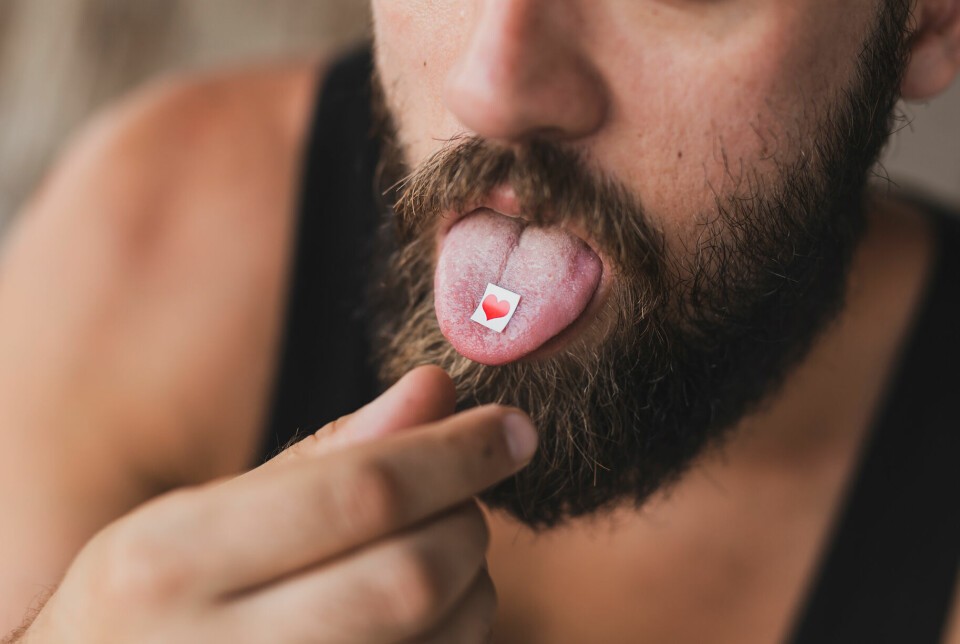
This is what Norwegians shared about their experiences with psychedelics
770 anonymous individuals have shared their good and bad experiences with substances like magic mushrooms and LSD with researchers.
In recent years, research has suggested that psychedelic substances may have beneficial effect on mental disorders.
But what do people actually experience when they take such substances?
We researchers have had little knowledge about this, says Tor-Morten Kvam. He is a researcher and psychiatrist.
Together with other researchers at Østfold Hospital Trust and the University of Oslo, he has tried to map this through a survey.
Magic mushrooms most common
In total, 770 anonymous participants over the age of 18 responded to the researchers' questionnaire. They were recruited through social media and websites of associations and organisations for people interested in psychedelic substances.
“It’s illegal to use psychedelic substances in Norway. They can be harmful. Yet their use is relatively widespread in Norway,” Kvam says.
Most respondents in the survey report having tried magic mushrooms. The next most common substance is LSD.
Most are men – a total of 72 per cent. The vast majority, 88 per cent, were 45 years or younger. Many of them were single. A relatively high proportion had higher education.

“Many report that they have tried psychedelic substances for fun or out of curiousity. But over 40 per cent have tried the substances therapeutically,” Kvam says.
Many struggle with mental health
There was a higher proportion in this sample who reported having mental health problems than the prevalence in the general population, he says.
“Naturally, we did not have access to the participants' medical records and could not verify whether they had mental disorders. What we capture in this survey is their self-perceived mental health,” Kvam says.
The researcher believes that this study, despite its limitations, has provided a lot of useful information.
“This gives us data from a much larger number of people than we get in a clinical study with a gold-standard research design,” he says.
Mystical experiences
The term psychedelic means ‘mind-manifesting’. These substances cause a temporary change in consciousness and bring unconscious content to the surface.
A research group at John Hopkins University in the USA linked the effect to so-called ‘mystical experiences’.
The American researchers found that a group of well-adjusted adults without mental health problems described their experiences with psychedelics as among the most meaningful in their lives.
In the new study, Norwegian researchers asked participants about any such memorable experiences.
Everyone had one or more such experiences, according to Kvam.
“Most experienced that they had gained increased insight into events they had experienced earlier in life and what they had meant for them. They had also gained more insight into their relationships with other people,” he says.
Something extraordinary
In a 2020 survey, Norwegian social scientists interviewed 50 people who used LSD, magic mushrooms, and other psychedelic substances.
Many spoke about uncertainty in contact with others and a longing for existential answers. They wanted to understand themselves and their place in the universe. This was reported by forskning.no in 2021 (link in Norwegian).
The typical participant in this study was a highly educated man in his 20s and 30s. Some had issues like anxiety, depression, and sleep problems.
All who were interviewed had experienced something extraordinary when using psychedelic substances. What they had been through could not be compared to any other experiences they had ever had.
Use new insights in daily life
Researchers at Østfold Hospital Trust have experience in treating patients with psychedelic substances. They are currently conducting a study where they treat patients with depression using the substance MDMA. In another study, they have used MDMA against post-traumatic stress disorder (PTSD).
In their research, they have provided psychotherapy before, during, and after treatment with the substance.
“We have tried to utilise the insights patients gain when they take MDMA in therapy, as they experience access to memories and emotions that are unconscious in daily life,” Kvam explains.
Around 60 per cent of those who responded to the questionnaire in the new study report that the psychedelic experience has enabled them to deal with difficulties and challenges in a new way.
They have found a new way to think about themselves and have tried to use the new insights in their daily lives.
Most viewed
No content
“But few have received help from a therapist for this,” Kvam says.
Experienced improvement
Most who used such substances as therapy believed they had experienced improvement after the psychedelic experience.
“We don’t have data that shows how they were before and after, nor information from a therapist or others who have assessed their condition. We only know that they themselves have experienced improvement,” Kvam says.
He believes that this and their other studies show a great potential that needs to be properly investigated.
“We do not want to claim that psychedelic substances are a cure for everyone. Some also experience side effects,” he says.
Some had side effects
Around 10 per cent of the 770 who responded to the survey report that they had side effects that lasted a few days.
These primarily included sadness, anxiety, or headaches.
4 per cent have had such side effects for more than one year after the psychedelic experience.
"Even though it's a small percentage, these are bothersome side effects that we must take seriously," Kvam reminds us.
MDMA is close to approval
The Norwegian studies on MDMA and talk therapy have not yet been published. But studies from other countries have shown that it can be effective against some things.
American researchers, for example, conducted a study where two out of three people diagnosed with PTSD no longer qualified for the diagnosis, according to TV2.no (link in Norwegian).
Kvam says he expects MDMA to be approved as a medication for PTSD as early as next year.
If this approval comes, it will be the first time that a psychedelic substance currently on the narcotics list is approved for use in psychiatric treatment in Norway.
In June, Australia approved the use of psilocybin, the active ingredient in magic mushrooms, and MDMA as medicine for certain types of depression and PTSD.
Treatment with psilocybin may become available in Norway in a few years, Tor-Morten Kvam believes.
References:
Tor-Morten Kvam et.al.: Epidemiology of classic psychedelic substances: results from a Norwegian internet convenience sample. Frontiers in Psychiatry, 13, 2023.
Jennifer M. Mitchell et.al.: MDMA-assisted therapy for moderate to severe PTSD: a randomized, placebo-controlled phase 3 trial. Nature Medicine, 2023.
———
Translated by Alette Bjordal Gjellesvik
Read the Norwegian version of this article on forskning.no
































